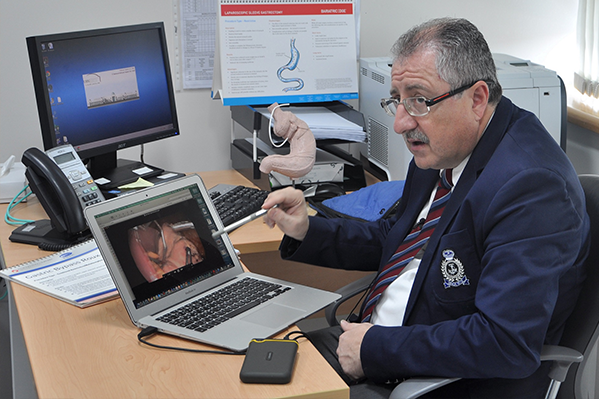
University Hospital Sharjah (UHS) has opened a bariatric surgery clinic that helps obese patients to lose weight and reduce the risk of heart disease and diabetes.
This advanced weight loss method uses the latest minimally invasive technique known as laparoscopic surgery where the recovery time is quicker and the patient goes home faster, compared to the regular form of surgery.
The Clinic opened recently and is part of a strategic plan developed by UHS to introduce many new services and facilities during this year.
Obesity is now considered a major health issue in the UAE as nearly 30 percent of the population is dangerously overweight, which leads to other serious complications such as heart disease and diabetes – debilitating diseases that affect the quality of life of many residents.
Bariatric surgery basically reduces the size of the stomach sac that controls hunger pangs to help the obese patient in controlling the amount of food they eat.
“There are three main types of bariatric surgeries: sleeve gastrectomy, gastric banding and gastric bypass”, said Dr. Fawaz Torab, Consultant Bariatric Surgeon and Head of Bariatric Team at the UHS.

He said surgeons select the appropriate procedure depending on the condition of the patient. “A specialist doctor follows up the case after surgery to check if there are any vitamin and protein deficiency problems and ensure a rapid postoperative recovery”, continued Dr Torab.
Bariatric surgery is found to be effective in treating other diseases that arise due to patients being overweight such as osteoarthritis that affects the bones of the legs, creates high blood pressure and can lead to other complications.
After a gastric bypass surgery, patients with Type II diabetes required only minimum of insulin injections and in some cases the affliction disappears completely.
Bariatric surgery is offered only to adults aged between 18 to 55 years, whose body mass index (BMI) is greater than 40kg/m2, those who have high blood sugar and high blood pressure and who have been suffering from obesity for at least five years.
Dr. Torab pointed out the other criteria for choosing a patient is that he or she should have tried to lose weight for the past six months and failed.
The bariatric clinic evaluates the patient and after surgery monitors the patient and gives nutritional supplements under the supervision of a multidisciplinary team of doctors.
Studies show that Bariatric surgery is the only method to lose weight permanently. While diet and exercise may help lose weight temporarily, the patient gains weight again after stopping exercise and diet control.

